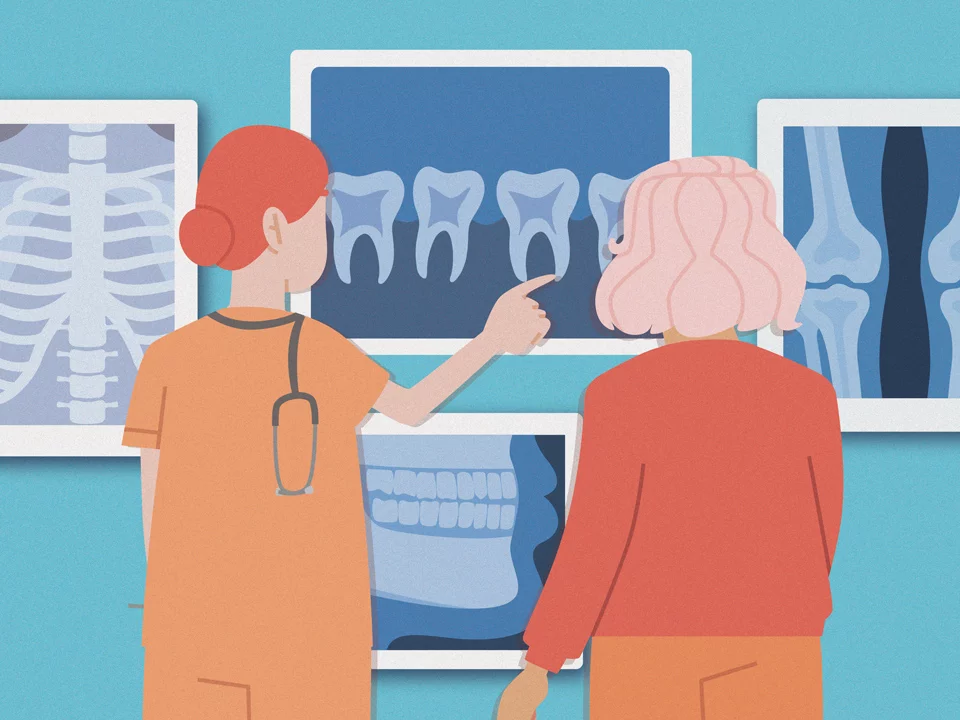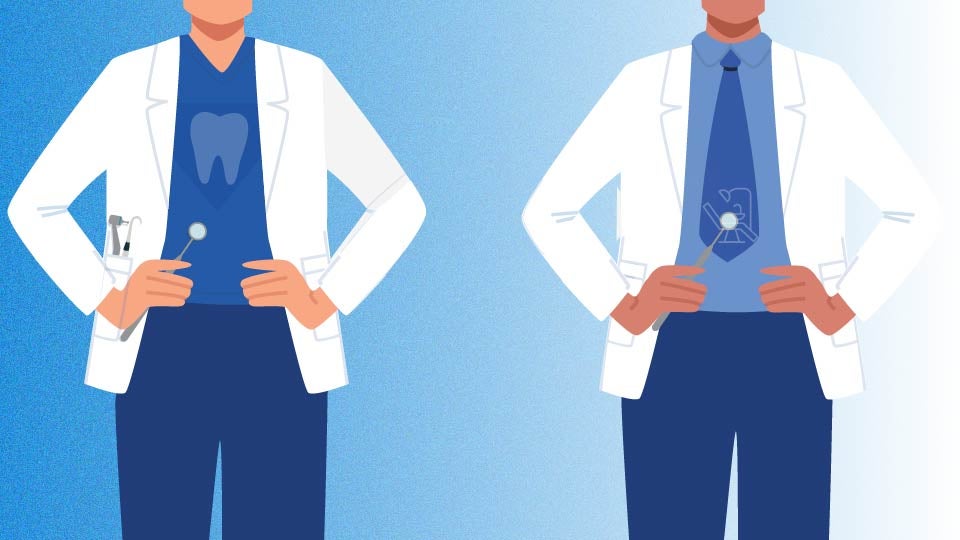From receding gum lines to dry mouth, women 65+ experience hormonally related shifts in their oral health that affect their overall well-being. We spoke with Dr. Carolyn Ghazal, DDS, to get a better understanding about the oral health issues that older women face – and what women can do to take control of their health.
Let’s start with the big picture.
Q: For women over 65, how does oral health connect to overall health?
A: The number of studies connecting oral health to overall health is staggering. Research has found links between periodontal disease and brain health, cardiovascular disease, diabetes, several types of cancer and more.
Taking a proactive approach to achieving and maintaining oral health will make a big difference – especially for people over 65, who run a higher risk of periodontal disease. At various stages in our lives, women might find themselves de-prioritizing their oral health. Whether it’s during pregnancy or the early years of motherhood, life circumstances can interfere with oral health routines.
You especially see this in older patients who neglect their own care while taking care of an ill spouse. It can be difficult to prioritize yourself when you are caring for a loved one, but don’t defer your pending dental needs – doing so could lead to health issues of your own.
Q: We often talk about menopause in terms of hot flashes or bone density, but what should women understand about the impact hormonal changes play on their oral health, including after menopause
A: Menopause negatively affects periodontal health by up to 60 percent, due to declines in estrogen. So, for example, women often experience a decrease in saliva production after menopause, a condition known as xerostomia or dry mouth, due to the role estrogen plays in the function of salivary glands. Harmful bacteria thrives in the dry environment, significantly impacting a woman’s oral health – and overall health.
It is something that happens in a subtle manner over time. Regular checkups and cleanings at this stage of life can help you combat oral decay, as well as uncomfortable hormone-related conditions such as dry mouth or burning mouth syndrome, which affects up to one-fifth of women over 50.
Q: It sounds as though dry mouth is more than just a nuisance. For older women, especially those on medications for blood pressure, anxiety or diabetes, what are the risks and how can they protect their teeth and gums?
A: It is true that hundreds of medications can cause dry mouth, which can, in turn, impact oral and overall health. An effective way to protect teeth and gums is to start with great oral hygiene that is meticulous and consistent. Floss. Brush. Use a waterpik. Fluoride also has its place for people who are open to using it.
Minimize sugars and avoid mouthwashes that contain alcohol. This will help with hydration issues. If needed, over-the-counter products such as Biotene also help.
Q: There’s a a growing conversation about the link between periodontal disease and cardiovascular health. For women with a family or personal history of heart disease what role should oral health play in their prevention or care plan?
A: The science is loud and clear about the Mouth-Body Connection®. One example of such research suggests that 50% of heart attacks may be triggered by an infection found in the mouth!
Working with dentists and cardiologists who understand the connection can help women take better control of their health. More doctors are starting to understand the link, but there is still a lot of work to be done. Don’t be afraid to bring up your heart health with your dentist and your oral health history with your primary care physician or cardiologist.
Q: If you could give one piece of advice to a woman in her late 60s who wants to stay healthy and independent as she ages, what would you tell her about her oral health that she might not hear from her primary care doctor?
A: A large portion of the population is interested in a proactive approach to their health – prevention rather than reaction. Prioritizing oral health should be a big part of that: Regular visits to the dentist, proper and consistent brushing and flossing and watching what you eat are all great ways to remain proactive!
The other piece of advice is to communicate: tell your doctor and your dentist about changes in your overall health, medical history and medications. Even if you don’t think the information has an impact on your dental care, it is important that your care providers have all the information, so they provide you with the best care possible.
Find your trusted, local dentist today!
Smile Generation blog articles are reviewed by a licensed dental professional before publishing. However, we present this information for educational purposes only with the intent to promote readers’ understanding of oral health and oral healthcare treatment options and technology. We do not intend for our blog content to substitute for professional dental care and clinical advice, diagnosis, or treatment planning provided by a licensed dental professional. Smile Generation always recommends seeking the advice of a dentist, physician, or other licensed healthcare professional for a dental or medical condition or treatment.








